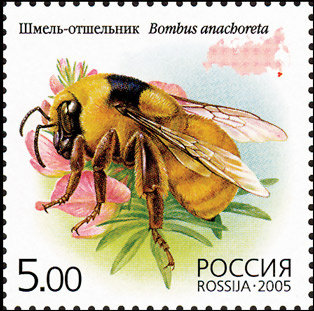Queen bees exposed to nicotine-based insecticides become less active and lay fewer eggs, a University of Minnesota study released Friday shows. It is an important finding in the growing understanding of why bee populations are in decline. The study, published in the journal Scientific Reports, fills in some gaps in that knowledge.
Honeybee colonies are typically smaller in the spring. Then the queen bee gets busy laying eggs and the colony grows rapidly. It should be at peak strength by the time summer flowers are in full bloom and ready for bees to perform their critical work as pollinators. However, queen bees exposed to neonicotinoid insecticide become lethargic and lay fewer eggs, says Judy Wu-Smart, who's now an assistant professor at the University of Nebraska-Lincoln, but did this research while a graduate student at the University of Minnesota. "We didn't know that the queens could be impacted so readily, we didn't know that at even lower doses that these queens would have reduced egg laying," she said.
Abstract paper: Many factors can negatively affect honey bee (Apis mellifera L.) health including the pervasive use of systemic neonicotinoid insecticides. Through direct consumption of contaminated nectar and pollen from treated plants, neonicotinoids can affect foraging, learning, and memory in worker bees. Less well studied are the potential effects of neonicotinoids on queen bees, which may be exposed indirectly through trophallaxis, or food-sharing. To assess effects on queen productivity, small colonies of different sizes (1500, 3000, and 7000 bees) were fed imidacloprid (0, 10, 20, 50, and 100 ppb) in syrup for three weeks. We found adverse effects of imidacloprid on queens (egg-laying and locomotor activity), worker bees (foraging and hygienic activities), and colony development (brood production and pollen stores) in all treated colonies. Some effects were less evident as colony size increased, suggesting that larger colony populations may act as a buffer to pesticide exposure. This study is the first to show adverse effects of imidacloprid on queen bee fecundity and behavior and improves our understanding of how neonicotinoids may impair short-term colony functioning. These data indicate that risk-mitigation efforts should focus on reducing neonicotinoid exposure in the early spring when colonies are smallest and queens are most vulnerable to exposure.
Sources:
Judy Wu-Smart & Marla Spivak
Scientific Reports 6, Article number: 32108 (2016)
doi:10.1038/srep32108
DAN GUNDERSON, Minnesota Public Radio News
http://www.postbulletin.com/news/local/u-study-nicotine-based-insectici…

- Login om te reageren
